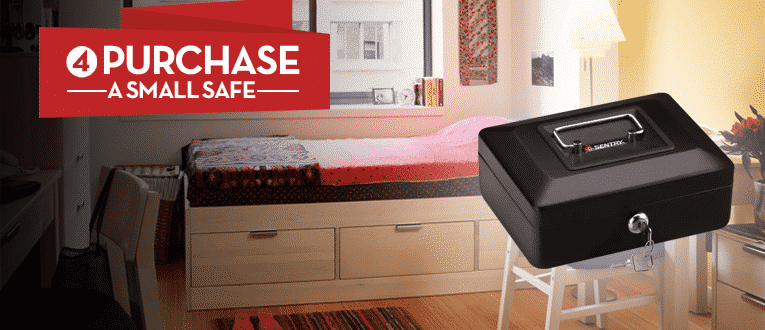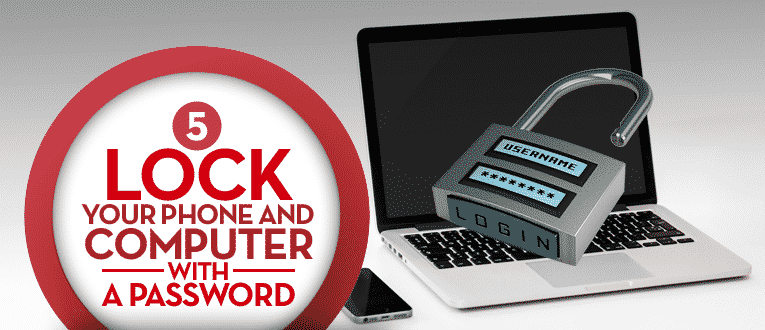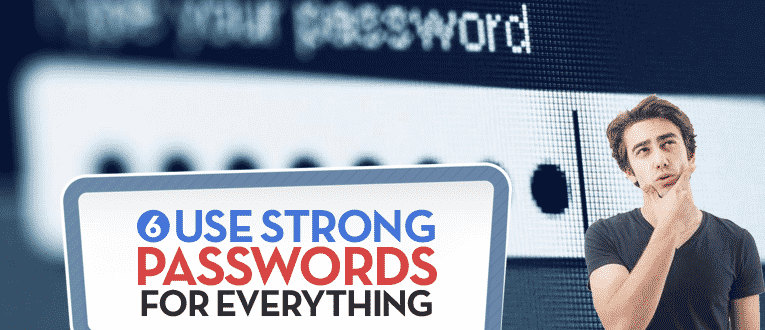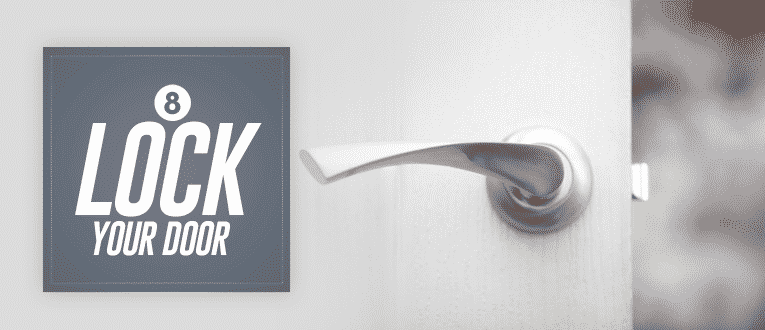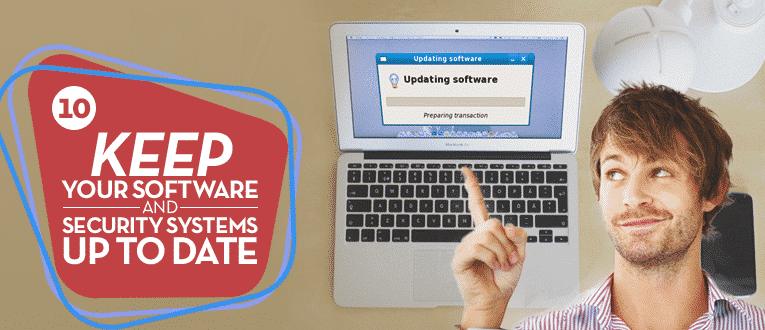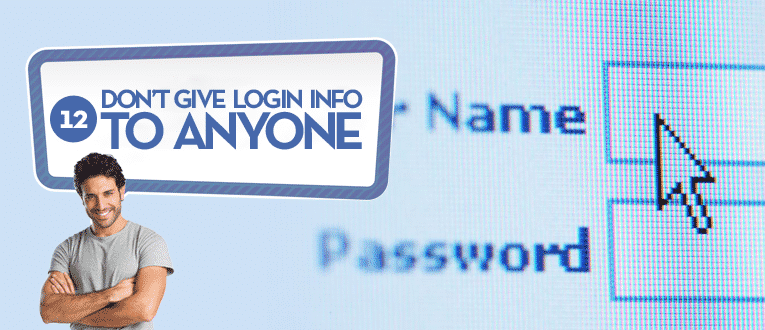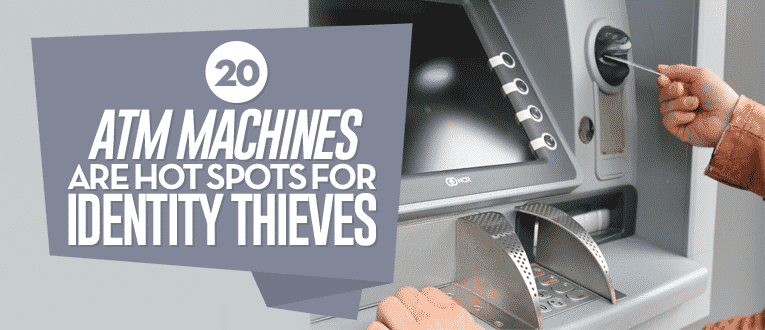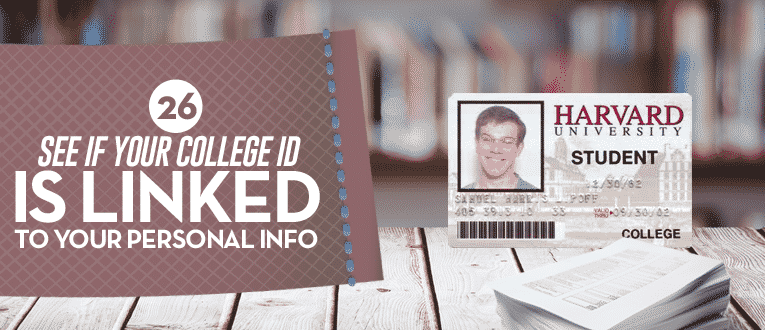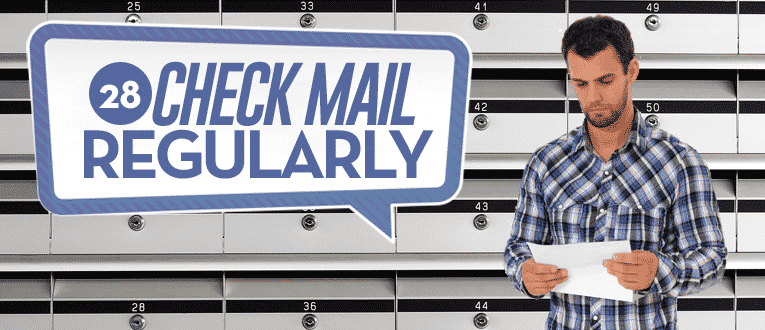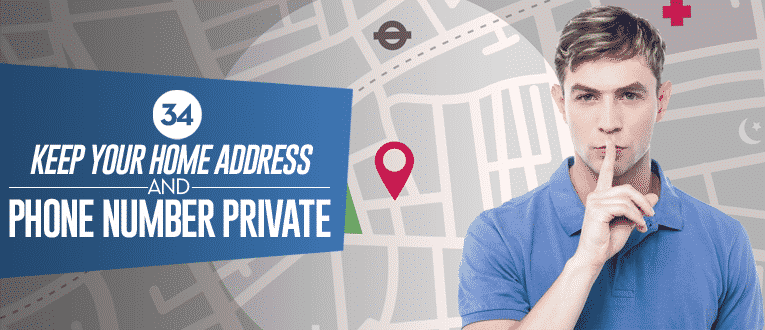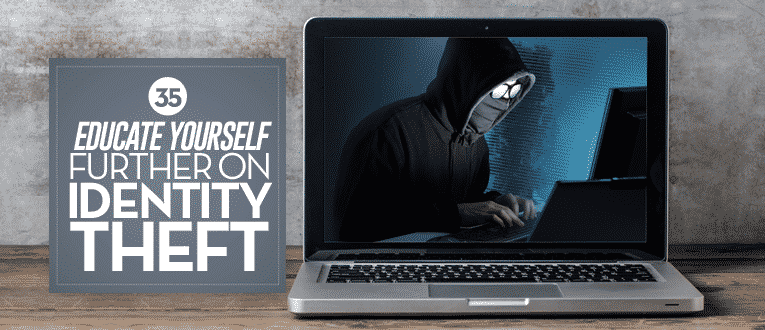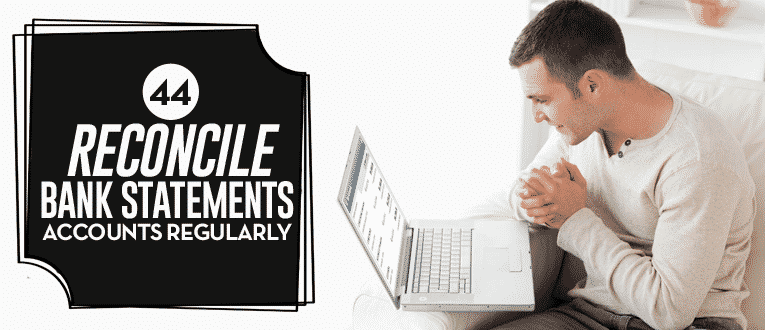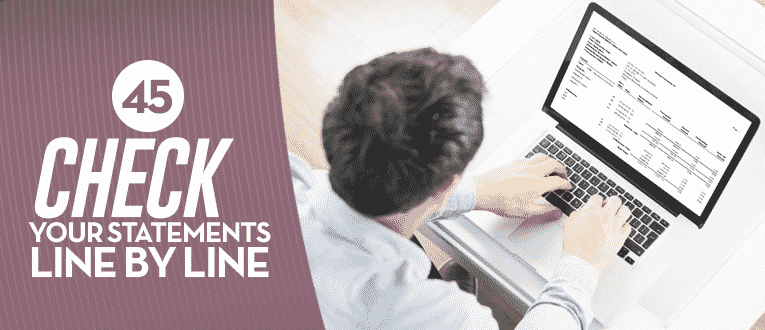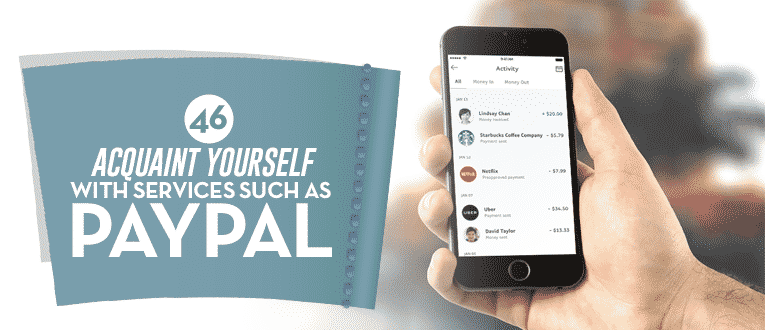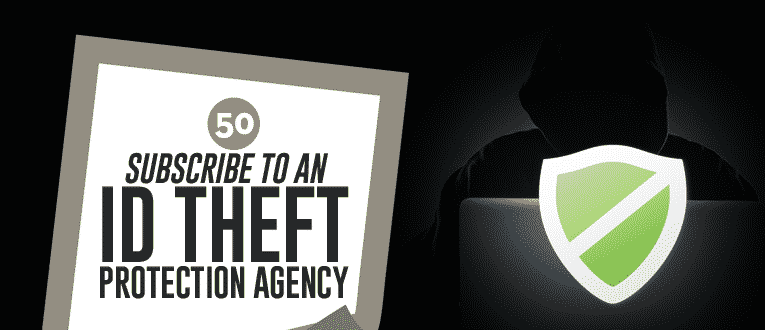1. Be cautious of public computers
Try to limit your usage on those computers to university-regulated sites and schoolwork. Don’t use them for anything to do with billing, and don’t forget to log off!
2. Don’t leave a paper trail
Never leave any receipts behind. When you close your tab at the bar, take the customer receipt with you.
When you get pizza and mozzarella sticks at 3am (classic college move), don’t tell the guy behind the counter to “just toss that.”
At the ATM machine, either take the receipt with you or elect not to have one printed.
3. Shred any important documents
Buy a shredder or find a location on campus where you can shred documents. Odds are, on campus, there’s somewhere to shred documents so reach out to administrators or professors.
If they fail you (no, we’re not talking about exams now) then you can probably find one at the post office.
If you don’t like locking up (see suggestion #4) papers then you need to dispose of them properly.
Take them to the shredder so nobody else can get their hands on them.
It’s highly recommended to shred your “junk mail” too rather than simply tossing it in the garbage and risk dumpster diving.
4. Purchase a small safe
Have any important papers or expensive jewelry? It’s worth it to buy a safe and protect anything of value.
You deserve to feel safe on and off campus at all times.
Whether you’re learning in class, grabbing lunch, or just hanging with friends, there will be times where your room and property are unattended or, worse yet, attended only by your randomly assigned roommate!
5. Lock your phone and computer with a password
Nobody should ever be able to access your phone or computer without a passcode.
There’s an obvious convenience to opening up your laptop and seeing the home screen instantaneously; but it’s worth setting up a password and taking 8-12 extra keystrokes to grant access for yourself and no one else .
6. Use strong passwords for everything
To piggyback off of #5, once you set up password locks, be sure to complicate the passwords.
It’s often recommended to never use any form of your name in your password and for good reason.
Nobody, under any circumstance, should ever be able to guess your password or anything close to it.
Using a mix of uppercase letters, lowercase letters, numbers, and special characters is the best way to strengthen the passcodes.
Most passwords require a minimum length of 6 or 8 characters, but it would suit you well to go above and beyond the bare minimum.
There are tools, such as 1Password, that can be used to create and enter extremely complicated, unique passwords that no human being could guess and no machine could brute force.
This is the ideal password situation.
7. Be wary of unsecured Wi-Fi networks
This is arguably the most important lesson on this list. Unsecure Wi-Fi networks are often the kiss of death f
or unsuspecting college students.
While most colleges offer university networks to connect to, many of them offer secure and unsecure versions.
When camping out in the library studying for midterms, you may be safely connected to the secure network.
But, as you bounce around from your dorm to your class to the dining hall to the gym and back, you may be going in and out of Wi-Fi connections, often unknowingly entering into an unsecure one.
Identity thieves on or around college campuses will prey on this variability.
It’s not uncommon for predators to open up their own “hot spot”, essentially luring people in looking for a “better” connection.
By using their connection, a student helps the predator complete a “Man-in-the-Middle” attack on the poor student.
Use good judgment and be careful around networks that are not provided by a known source.
8. Lock your door
Not exactly a groundbreaking discovery, but it’s an overlooked phenomenon that needn’t be taken lightly.
If you’re living in the dorm, leaving the door to your room open is a common practice.
There’s no better way to meet people and generate a social life than hanging out with your roommates and neighbors than to just let them wander in, but don’t get caught in that habit.
Even if you’re taking a quick shower before class, lock the door and bring the key with you (plus, you don’t want to leave it unlocked because your roommate is there only to come back to a locked door while you’re standing outside without a key and only wearing a towel).
9. Download anti-virus software
This is an incredibly useful tip. Everyone has personal information on their computer whether it be in the form of online accounts, saved documents, or even just a username.
It would be a shame to contract a virus that either doesn’t allow you to access your personal documents or one that forces you to completely wipe out the hard drive. Use an anti-virus software like Kaspersky and keep your computer safe.
10. Keep your software and security systems up to date
Set up your computer to automatically search for software updates. If you leave it set to manual, odds are you’ll rarely ever do it.
If your computer is operating on an old, out-of-date, or obsolete operating system, it’s not compatible with current technology and you may have trouble securing it.
Updating your installed software keeps your computer functional and, above all, safe.
11. Invest in an external hard drive
You may not even realize what kind of personal information can be dissected from all your old files, most of which you probably haven’t opened in years.
Do your identity a favor and buy an external hard drive to store your documents. It will clear space on your computer and keep those documents safe and inaccessible to others.
12. Don’t give login info to anyone
Your login info is like your house keys, and you wouldn’t pass those to just anyone.
It goes without saying, but nobody should ever have your login information. You may encounter a situation where you can’t get to a computer with an assignment due.
You may be tempted to call up your roommate to log onto your computer to get the assignment submitted on time.
Do not give into temptation. Don’t try to justify it by telling yourself it’ll only be a one-time thing because once that information is gone, it’s never coming back.
You can’t undo the action of signing away your personal login information.
13. Don’t loan your credit card to anybody
Operating on a tight budget is status quo for a college student. Between books, food, and more, you’ll learn how to stretch a dollar as far as possible.
With a limited income, you will at some point find yourself a little short on cash.
It’s also not uncommon for one person amongst a group to pay for something, let’s say a round of drinks, up front, and everyone else pays them back.
That’s nothing more than being a good friend in my opinion. But when it comes time for you to pay the bill, make sure you are the one that’s paying.
Don’t give your credit card to the person closest to the bar and tell them to pay for you. Nobody should ever possess your credit card even if just for a few brief moments.
14. Your roommate(s) should never have access to your information
Student ID and credit card aside, there are many other possessions that can be useful to anybody looking to take advantage.
Just because your roommate is also your good friend doesn’t mean they should have carte blanche to anything that belongs to you.
Specifically, they don’t need to know any banking information, important passwords, addresses, and phone numbers.
15. Don’t use anybody else’s computer
With current technology, most websites have the ability to store recent passwords.
Every site you log onto could probably be accessed again the next time with the memory of your most recent login.
If you use a friend or classmate’s computer for anything, it’s not unreasonable to say that they’ll have access under your credentials.
Even if you log out, your username and password may be stored in the computer’s memory.
If you must use someone’s computer, treat it like a public computer (tip number 1).
16. Look for https websites
Something that many people are probably unaware of is that you can tell how secure or unsecure a website is simply by the full domain name.
If you’ve ever looked at the website search bar, you’ve probably seen most sites starting with “http”, before the “www.” part. But the “https” prefix is what you want to see.
That little “s” literally means secure. So if there’s ever a chance to use secure websites with the “https” at the front, you’re helping your chances of staying secure during your web browsing.
17. Don’t click spam or ad links
Your parents may have explained this to you when you were growing up using the internet.
Those flashing banners and pop ups at the top of webpages are nothing more than click bait riddled with viruses.
One click could corrupt your entire hard drive and open the door for hackers and thieves.
18. Limit online shopping use
I get it, it’s convenient, it’s fun, and it’s quick. You’re stuck on campus, maybe without a car, and not many options for physical shopping.
The limitations of luxuries such as shopping malls cause an increase in e-shopping for college students.
But with online shopping comes the risk of putting your credit card and other personal information out there.
If you need to purchase on-line, make sure to use secure sites like PayPal so the transaction is secure and the seller won’t have access to your personal info.
19. Do not overshare on social media
The more you tell others about yourself, the less security you have. Don’t post every aspect of your life on social media.
Your friends and followers will appreciate it for starters. Even when you tweet out something as simple as “At class”, that means you are not in your dorm or your house.
It’s a bit of a stretch to link that tweet to someone realizing you’re not home and going to rob you, but patterns can be established and suddenly a malicious person could piece together that you’re always in class from 2:00 to 2:45.
20. ATM machines are hot spots for identity thieves
Thieves have grown clever over the years, and their methods of stealing information have become increasingly sophisticated.
There are chip readers that criminals put into the ATM card slots that read the information of every card inserted into it.
They are small enough that the average person couldn’t see it without looking specifically for it.
Looking back to tip #4, ATM receipts are also a lottery ticket for anyone with malicious intent.
Try to use the ATM machines at your bank, and stay away from the convenience store ATMs that aren’t regulated by a financial institution.
21. Ignore credit card offers
College students are among the most popular targets for credit card companies to recruit new members.
Only 17% of freshmen have credit cards, but by the time senior college students walk out of the building for the final time, 47% of them have are carrying a new plastic card in their wallet.
You’ve probably already gotten letters in the mail with offers to sign up for a new card.
Each offer has its own perks trying to catch your eye and earn your business. Given the popularity, fraudsters and posers have become keen to this method as well.
They’ll craft up offers of their own that aim to persuade college students to sign up for a credit card (such as a free t-shirt for applying) and relinquish their personal information in order to get one.
22. Be wary of freebie-incentivized sign ups
It’s important to balance your academic life with a personal life while also being able to give back to the community, something that many clubs on every campus will offer.
However, you’ll often be required to sign up with more information than you’d like to give away in order to join.
They’ll offer freebies and other incentives to sweeten the pot, but don’t sign away your life just to join a club on campus.
23. Be mindful of when and where you’re giving out information
In addition to clubs, at one point or another you’ll be asked to participate in raffles or contests.
Even in class you may have guest speakers ask for sign-ups that require you to jot down some level of information.
You won’t get very far in life without providing any of your information, but be smart about it.
Be aware of who’s getting that information. If that means asking additional follow up questions, then so be it.
Nobody will take offense to you asking questions that ensure your own safety and protection.
24. Watch out for email and phone scams
Phone solicitors and email blasters are no stranger to college students. Odds are if you get a phone call saying you won a free cruise to the Bahamas, it’s a scam.
They’ve become so specialized that you’d think they’re legitimate, personal messages instead of your classic “garbage” phone call.
Use good judgment and be cautious of scams via email and cell phone.
25. Be hesitant of business opportunities
College students are perfect targets for businesses looking to acquire new young talent. Some of these opportunities are nothing more than scams.
Phishing scams and pyramid schemes are spreading like wildfire across college campuses. Pyramid schemes, in particular, are an epidemic sweeping the nation.
Schemers who are trying to put more money in their own pocket, will seek out young, gullible college students and sell them on the idea that they can increase their own personal income.
Savvy, sweet-talking salesmen will talk your ear off and tell you what you want to hear; don’t listen.
26. See if your college ID is linked to your personal info
Believe it or not, more and more universities are generating your student ID numbers based on your personal information.
Sometimes they literally take your social security number and add a single character to it.
Imagine that! Anybody could identify your social security number by looking at your college ID card.
Do your due diligence and find out how your ID numbers was derived.
If it’s at all linked to your social security number or any other personal identifier, either keep your card under safe guard or request a new ID number from the university.
27. Direct all important mail back home
If you’re worried about not being able to keep track of all your belongings as well as managing your own mail, have important mail sent to your home address versus your on-campus mailbox.
You can easily arrange for credit card bills, bank statements, and even university-related papers sent to your home.
That pile is better off being at home with your family than in your room where your friends and roommates could have access to it.
28. Check mail regularly
Even after a 3 day frat party, it’s still not a good enough excuse to check your mail every day. At the very least, schedule a regular visit to the campus mail room because you don’t want mail to pile up.
Use a shredder and essentially destroy it all after opening. Going through someone else’s mail is one of the most common ways of stealing someone’s identity.
29. Get a PO Box
In the case where you can’t get to your mail every day, by investing in a PO Box you’ll never have to worry about who sees your mail or the far-too-common occurrence of your mail accidentally being dropped in a neighbor’s box by mistake.
PO Boxes are still very much in use and are incredibly easy to get.
They’re available at your local post office, and they typically cost as little as $3/month!
You’ll never know who sees your mail on campus, but you will know the privacy and security of your mail is intact having a PO Box.
30. Clean your desktop and inbox regularly
Touching back to tip #11, it’s vital to clear space on your computer. In addition to leaving room for future documents and emails, you aren’t doing yourself any favors by sitting on emails from years ago.
If you maintain a (somewhat) organized inbox, there’s less information archived for someone else to see should they get onto your computer for whatever reason.
31. Sign up for Do Not Call Registry (1-888-382-1222)
Here’s a great way to limit your risk of falling victim to phone scams and solicitors (#24).
Asking telemarketers to take you off their list only goes so far; but if you sign yourself up for the Do Not Call Registry, your phone number shouldn’t be passed around from list to list and sold from company to company.
32. Trust nobody
There’s a good chance you’re responsible and have good morals, but not everyone is the same; you’ll be surrounded by peers, some of whom are greatly irresponsible or have ulterior motives.
The point is that you never know who will be trying to take advantage of you.
I don’t advise you to walk around always looking over your shoulder, but don’t be naïve and allow others to deceivingly earn your trust.
33. Don’t tell anybody about your student loans
Your student loans and financial standings are your (and maybe your family’s) business and nobody else.
Having knowledge of another person’s situation on a monetary value could change your conscious and/or subconscious thoughts about them.
They may use that to their advantage, regardless of whether you’re on a full scholarship or have student loans and are working to pay your way.
Either they’ll want to use you for your money, or they’ll ask you to star in their film “Students gone wild” for 40 bucks.
34. Keep your home address and phone number private
Consider this an extension to #32. There are certain aspects of your life that others don’t need to know.
You won’t benefit at all from your floor mates knowing your home address/phone number.
For all you know, that person will use that against you. They now know your address and thus where your mail is going.
In short, nobody needs to know that information.
35. Educate yourself further on identity theft
Identity theft is a seemingly growing problem in America, and it’s especially conducive to the college scene. It can happen to anyone.
Your life and lifestyle will change a great deal as your venture off to college. Take the time now to study up on the epidemic.
If you have an understanding of the perils and risks associated with being a college student, protecting your identity, and a combination of those two, you’ll be doing yourself a favor and increasing your odds of preventing any issues down the road.
36. Make copies of everything in your wallet
Photocopy your license, credit cards, medical cards, and student ID. Keep them in a secure place, whether that is in your safe (tip #2) or at home.
If in the event you lose your wallet or it gets stolen, you’ll want some semblance of knowing the information you no longer physically have.
37. Only carry what you need in your wallet
“Traveling light” is an effective approach towards limiting risk. Some people carry around their social security cards in their wallet.
For what?! There is no reason you’ll need to whip out your SSN randomly within a day. The more information inside your wallet, the bigger goldmine it becomes!
38. Minimize the amount of credit cards that you’re using
Building credit is an important part of becoming an adult. Having and using a credit card responsibly is a great privilege and opportunity.
One credit card should suffice in a college environment. Limiting yourself to carrying one card at most, limits your potential for loss in the worst-case scenario.
39. Use cash
This one is short and sweet. If possible, don’t use a card at all.
There’s no risk of having your identity stolen if you’re only carrying and paying with cash, since cash never has your name and SSN associated with it.
It’s also convenient since, unlike credit cards, cash is universal; it’s accepted everywhere. With carrying plastic comes power but also an associated risk.
40. Tell the bank you’re living away from home
Banks are actively monitoring your account’s activity to make sure no suspicious charges are being accrued.
If you tell them you’ll be away from home and at college, they’ll have even more ease identifying fraudulent activity.
Your bank will be able to monitor your account based on your new location and subsequently be better equipped to protect you.
41. Establish a credit freeze
Also known as security freeze, a credit freeze will prevent your information from being shared with a third party.
If an identity thief tries to apply for a credit using your social security number, the vendor won’t be able to access your credit report and then the request will have to be declined.
The freeze has no impact on your credit score or active accounts. Here is everything you need to know about a credit freeze.
42. Set a limit on your accounts
Most credit cards have a limit of how much you’re permitted to spend per pay period.
It’s typically based on your income and sometimes affected by your spending history and financial standing.
Follow up with your bank or credit card company to freshen up on your account settings and limits.
Also consider lowering the spending cap to a number that you foresee yourself spending.
You can set it up to be notified for any purchase over a certain limit.
43. Start/continue to manage your finances
The earlier you begin managing your own finances, the better off you’ll be coming out of college.
My parents motivated me to handle my own money, manage my own check book, and to use my own credit card and I am thankful for that.
Coming out of college, I had friends that had never written a check, didn’t own credit cards, and were far behind in terms of having complete financial autonomy.
With knowledge comes power, and the more you know, the less opportunity there is to be taken advantage of.
44. Reconcile bank statements accounts regularly
Compare bank statements and receipts side by side. Make sure everything adds up; how much you had, how much you spent, how much you now have, etc.
Establish and maintain a familiarity with your finances and your accounts.
Over time you’ll develop a routine and each cycle gets easier and easier if you know the details of your credits and debits.
45. Check your statements line by line
Don’t jump the gun and pay your bill before inspecting the statement item by item.
Every month, you can access a statement that shows every purchase in order of date, including where the purchase was made, and for how much.
Charge descriptions can often be vague, so if you’re not absolutely certain about a specific charge, call the credit card company as they should be able to provide further information.
Especially in college, you’re undoubtedly bound to make a lot of little purchases throughout the month. Take your time in inspecting your monthly bills to ensure their accuracy.
46. Acquaint yourself with services such as PayPal
PayPal is a regulated online payments system. It’s an alternative to traditional monetary exchanges such as checks and money orders.
For college students who hate physical paper records, this online option is a great asset.
When you purchase clothes, tickets, or anything else online, you can usually elect to pay via PayPal instead of a credit card.
It’s a very safe and viable option as opposed to typing in your credit card info plus it limits your risk to whatever amount of money you have put into that account.
A definite bonus to using PayPal is monetary transfer to you through PayPal can get deposited directly into your bank account.
47. Take advantage of free credit reports
Order your credit report. You can receive one free credit report every year. To get a report, go to https://www.annualcreditreport.com/index.action.
Some credit monitoring agencies will conduct credit checks up to three times a year, sometimes more (the more the better).
48. Get your free credit report from multiple agencies and check for accuracy
You can get multiple, free credit reports per year and from more than one agency. If there’s a red flag on one report, you should have the same red flag on the other.
A second opinion never hurt anybody. Check any and all reports for blemishes or inaccuracies as they should be consistent across all reports.
49. Read up on news and current events
Educate yourself. Stay up to date on current news stories locally, nationally, and across the globe.
There are newspapers, TV networks, and online resources providing real time updates for anything you’re interested in, financially relative or not.
Being knowledgeable and aware of what’s going on gives you a leg up on those who are oblivious and uninformed. Read the news when you’re eating lunch.
Naturally, the more educated you are in the financial industry, the better suited you’ll be to protect yourself.
Hey, you may come across a new story on identity thieves!
Watch this 90 sec video on how to customize your Google news feed to receive information about identity theft so you can stay informed.
50. Subscribe to an ID Theft Protection Agency
The way each person needs to take proper measures to protect their identity varies. Age, income, and household status all play a factor into how much (and what kind) of steps should be taken to protect yourself.
By closely working with an ID Theft Protection Agency, all protection services are bundled together into one product.
Adults, children, and everyone in between (college students) are eligible and can benefit from such a diverse tool.
LifeLock offers some of the best product services on the market, and it’s an incredibly easy site to navigate.
51. Be vigilant and aware
If you’re aware of the possibilities of negligence, incompetence, and carelessness, you’re already doing a great job in protecting your identity.
Be vigilant and observant of anything you consider to be suspicious.
Know that it can happen to anybody, and don’t think you’re immune because you’re not.
How Vulnerable are College Students to Identity Theft?
College students have 5 times the probability of becoming a victim of identity theft compared to the general public according to the 2015 Javelin Strategy & Research Identity Fraud Report.
College students tend to have “optimism bias” that makes them feel untouchable and causes them to not take safety precautions.
This leads to a tendency to ignore warning signs and advice that could prevent them from becoming targets for scams and that’s why they’re among the most targeted individuals for identity theft.
The FTC reported that 18% of Americans who suffered from identity theft in 2014 were between the ages of 20-29.
In addition, most young people don’t discover the fraud themselves; 22% of college students only first found about when a debt collector contacted them or when they saw the dreaded “DECLINED” on the credit card machine.
Just like pop-quizzes, these eye-opening statistics still aren’t enough to awaken college students.
Business Insider found through research that 64% of college students are “not very concerned” about identity theft; which is exactly the problem.
Take some time to learn about identity theft and get educated on how to prevent it.
When you show up on campus, come prepared with a good head on your shoulders. Classes and a social life are hard enough to balance without having to learn about identity theft the hard way.
So I’ve come up with a list of 51 simple ways to prevent identity theft from becoming the biggest stress in your life instead of final exams.
It’s the ultimate guide for any college student. It may not help you get a date, but it sure won’t hurt.
What’s more attractive than intelligence, financial stability, and ultimate protection?
How likely are you to get a second date if your first ends with a “declined” message when you’re paying the bill?
Wrap-up
College is the best time of your life, so don’t forget to enjoy it. This list was not compiled to instill fear but rather an inspiration to protect yourself and expand your knowledge.
You will learn valuable life lessons in college. You may forget everything you learn inside the classroom, but you’re bound to grow as a person through trial and error.
Take this list as a guide to not only becoming financially responsible, but to learn to care about everything in your life.
If you put in the time and effort, you’ll see positive results. That’s true in protecting your identity as well as just about any other goal you set for yourself.





